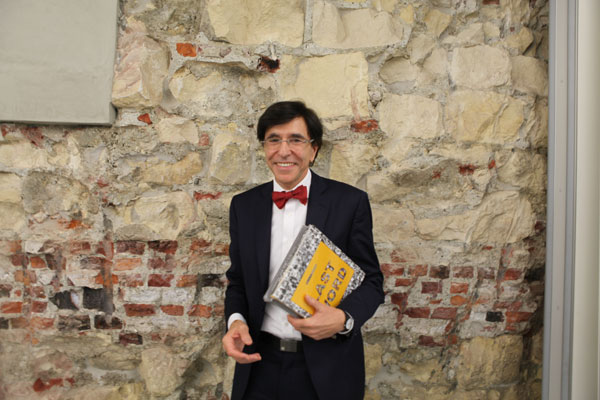Belgium's bank application probably delayed
By Fu Jing (China Daily) Updated: 2015-04-08 07:39
 |
|
Former Belgian Prime Minister Elio Di Rupo, now mayor of Mons, receives an exclusive interview with China Daily in Mons, Belgium April 2, 2015.[Photo by Fu Jing/chinadaily.com.cn] |
Belgium's former prime minister Elio Di Rupo expressed both excitement and regret when talking about his country's ties with China in recent times, when I spoke with him on Thursday.
He talked excitedly of the two Chinese pandas that moved to Belgium at roughly the same time last year. Di Rupo, who was prime minister at the time, remembered clearly that the agreement on leasing two pandas for 15 years was signed no more than 24 hours after his talks with Premier Li Keqiang in September 2013.
And he was delighted when in February last year, two pandas arrived at Pairi Daiza Zoo in Brugelette and King Philippe I, President Xi Jinping and he unveiled the panda garden on March 31 last year.
Di Rupo said this reflected the closeness in bilateral relations.
However, Di Rupo, now the mayor of Mons and aiming to promote the city, which is this year's European Capital of Culture, to Chinese visitors, is not satisfied with the Belgian government's reluctance to join the China-initiated Asian Infrastructure Investment Bank, which has attracted applications from more than 50 countries.
Despite admitting that he is not tracking the issue, Di Rupo was disappointed that his country did not apply to be a founding member even though many other Western European countries have done so.
But he said he believes it is only a question of time before Belgium applies.
On the same day, I met professor Zhang Haiyan, director of the Neoma Business Confucius Institute in Rouen, France, who told me that Beijing's leading role in setting up the AIIB have already resulted in split opinions between those in power and those in opposition in some Western countries.

I’ve lived in China for quite a considerable time including my graduate school years, travelled and worked in a few cities and still choose my destination taking into consideration the density of smog or PM2.5 particulate matter in the region.











